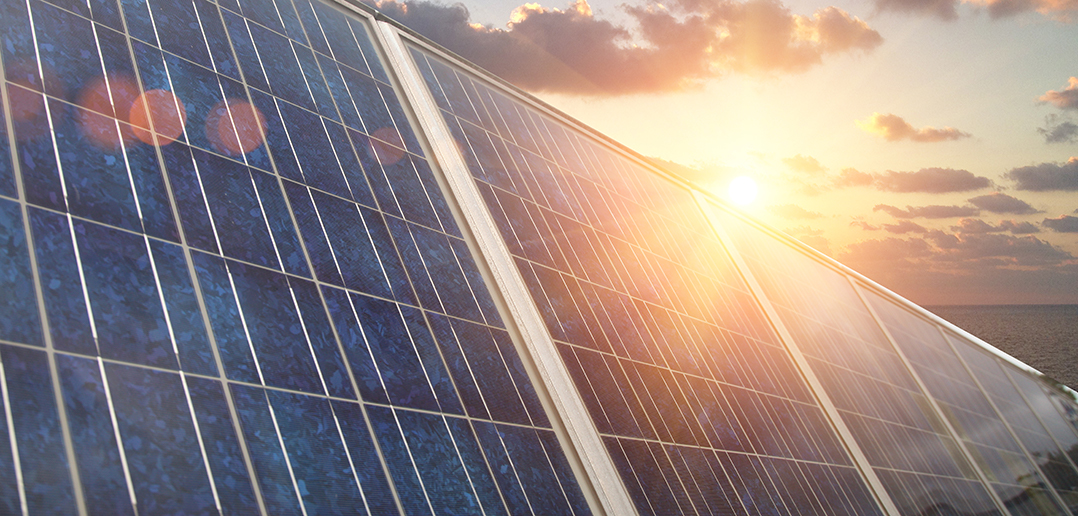
Alternative history: solar PV development in World War 2
November 26, 2019
I'm partly inclined to a chaos theory of history where lots of outcomes are contingent. Alternative history (wiki pedantically insists on "counterfactual history") can explore what could have been.
So, could solar PV have gone through development boost during World War 2? Solar panels were first deployed in 1884 and researched intermittently afterwards. What if someone with sufficient political power during the war got a research program together on solar power for military purposes - could they have done anything with it?
My answer is a limited yes. These would've been selenium cells, not the silicon chips discovered in the 1950s. At 1% efficiency, that's good enough to recharge batteries for radios, lights, maybe other tools (weather instruments?). Isolated outposts in the Pacific and commando operations in Southeast Asia and Europe could've benefited from this.
The effect on the war likely would've been a modest benefit for whichever side used them (Japan could've benefited as much as the Allies) but unlikely to be a gamechanger. The only exception might be in the Pacific where the outcome of naval battles seem to rely so much on chance, so that slightly better information about enemy forces could've affected individual battle outcomes. Still, in the long run the Axis was doomed pretty much regardless and the question is only how fast they would lose.
For solar panels and climate change, the effect would be slightly better. The first practical use of solar PV was on spacecraft in the early 1960s, and the second about 5-10 years later was on isolated outposts like oil rigs and navigation buoys. That second use could've been discovered in the 1940s instead of 25 years later. By itself that does little to reduce emissions, but it might have accelerated the declining cost curve for solar power - not by 25 years, but by some amount.
So that's a might've been. And even in the real history, World War 2 did have an effect on solar PV because it accelerated rocket technology and eventual satellite development, where PV was valuable regardless of price. A small benefit at a horrendous cost in life.
Two other possibilities - first, I don't know the power requirements of World War 2 radars but I imagine they could be powered by batteries. That means outposts could be monitoring ship movement and weather at night, making them much more effective if solar PV kept them charged up. Radar wasn't totally a secret during the war btw, just the most advanced forms, so the Allies could've deployed this without risking their advantage. I'd guess this would have somewhat more effect on the war, but little additional effect on solar PV implementation.
A second, more out-there alternative history imagines that the electric vehicles of the 1910s and 1920s continued to be developed up to World War 2. Having military vehicles powered by solar PV could've had strong effects on the war. Patton's breakout from Normandy was eventually stopped by a lack of fuel, not by the Germans. Interesting to imagine how it could've gone if after a day of recharge, even some of the units could keep pushing forward. It's also hard to imagine recharging a tank on solar panels, though, but even if you only have electric bikes and motorcycles, that could be useful during the war, and maybe help keep electric vehicles in production afterwards.
Some interesting timelines, but we have to deal with the one we've got instead, and make the best use of it.
So, could solar PV have gone through development boost during World War 2? Solar panels were first deployed in 1884 and researched intermittently afterwards. What if someone with sufficient political power during the war got a research program together on solar power for military purposes - could they have done anything with it?
My answer is a limited yes. These would've been selenium cells, not the silicon chips discovered in the 1950s. At 1% efficiency, that's good enough to recharge batteries for radios, lights, maybe other tools (weather instruments?). Isolated outposts in the Pacific and commando operations in Southeast Asia and Europe could've benefited from this.
The effect on the war likely would've been a modest benefit for whichever side used them (Japan could've benefited as much as the Allies) but unlikely to be a gamechanger. The only exception might be in the Pacific where the outcome of naval battles seem to rely so much on chance, so that slightly better information about enemy forces could've affected individual battle outcomes. Still, in the long run the Axis was doomed pretty much regardless and the question is only how fast they would lose.
For solar panels and climate change, the effect would be slightly better. The first practical use of solar PV was on spacecraft in the early 1960s, and the second about 5-10 years later was on isolated outposts like oil rigs and navigation buoys. That second use could've been discovered in the 1940s instead of 25 years later. By itself that does little to reduce emissions, but it might have accelerated the declining cost curve for solar power - not by 25 years, but by some amount.
So that's a might've been. And even in the real history, World War 2 did have an effect on solar PV because it accelerated rocket technology and eventual satellite development, where PV was valuable regardless of price. A small benefit at a horrendous cost in life.
Two other possibilities - first, I don't know the power requirements of World War 2 radars but I imagine they could be powered by batteries. That means outposts could be monitoring ship movement and weather at night, making them much more effective if solar PV kept them charged up. Radar wasn't totally a secret during the war btw, just the most advanced forms, so the Allies could've deployed this without risking their advantage. I'd guess this would have somewhat more effect on the war, but little additional effect on solar PV implementation.
A second, more out-there alternative history imagines that the electric vehicles of the 1910s and 1920s continued to be developed up to World War 2. Having military vehicles powered by solar PV could've had strong effects on the war. Patton's breakout from Normandy was eventually stopped by a lack of fuel, not by the Germans. Interesting to imagine how it could've gone if after a day of recharge, even some of the units could keep pushing forward. It's also hard to imagine recharging a tank on solar panels, though, but even if you only have electric bikes and motorcycles, that could be useful during the war, and maybe help keep electric vehicles in production afterwards.
Some interesting timelines, but we have to deal with the one we've got instead, and make the best use of it.


